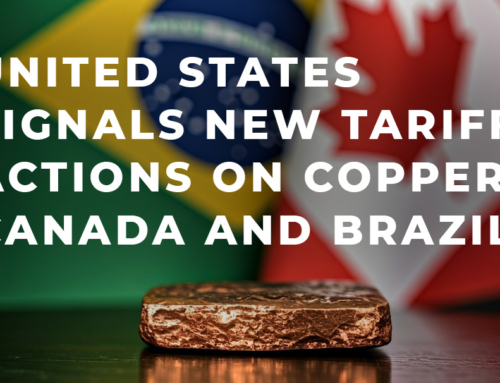In a frantic race against time, Canada and the United States sealed the deal this past Sunday to secure trilateral trade that had been progressing under the North American Free Trade Agreement (NAFTA) for almost a quarter of a century. The new deal, known as the United States-Mexico-Canada Agreement (USMCA), aims at reducing U.S. trade deficits. Once signed by U.S. officials by the end of November, it will go to Congress for approval.
Read the Office of the United Stated Trade Representative’s full United States-Mexico-Canada Agreement Text.
Here are the highlights from the new trade deal:
DAIRY
Canada will eliminate Class 6 and Class 7 milk categories and pricing adjustments for skim milk, skim milk protein, and ultra-filtered milk within 6 months after the USMCA goes into effect.
This will provide U.S. dairy farmers access to 3.5% of Canada’s $16 billion domestic market. The Canadian government will offer compensation to domestic dairy producers impacted by the deal.
CHAPTER 19
Canada maintained control of its Chapter 19 trade and state-to-state dispute settlement mechanisms to protect dominant sectors such as energy, telecom, and infrastructure from investor-state disputes.
AUTO
While the United States still preserves the right to impose Section 232 tariffs on the automobile sector for both Canada and Mexico, both countries would receive a tariff-free passenger vehicle quota of 2.6 million units exported to the United States annually – well above the current export levels. Pick-up trucks will be completely exempt for both countries; additionally, Canada and Mexico will annually receive auto parts quotas of $32.4 billion and $108 billion, respectively.
Additional rules of origin requirements would also require that 40% of vehicles be made in high-wage areas ($16/hour) and source 70% of steel and aluminum from within the USMCA partners.
MEXICO OIL
Mexico will retain its direct, inalienable and imprescriptible ownership of all hydrocarbons in its subsoil – but, does not prevents foreign oil production under industry liberalization.
Read the Office of the United Stated Trade Representative’s full United States-Mexico-Canada Agreement Text.
As Green continues to monitor the situation, stay up-to-date on freight news by following us on Facebook, Twitter, and LinkedIn or, subscribe to Green’s Freight Talk blog to received updates directly to your email.






